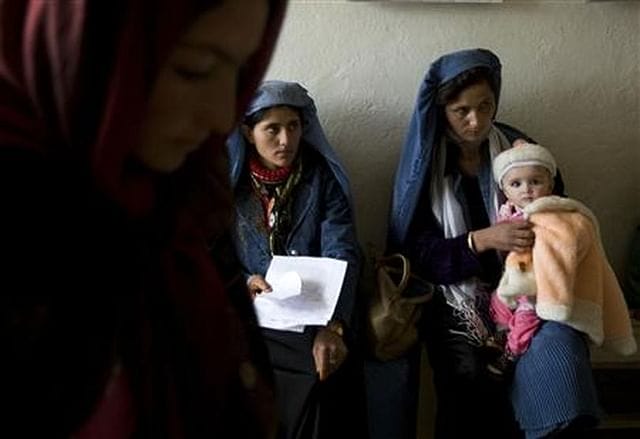A touching story of the Taliban giving birth in Afghanistan
Rabia (pseudonym) gave birth in a small hospital in the eastern Afghan province of Nangarhar. “This is my third child,” she said of her experience of giving birth. But my experience of giving birth to this child was completely different from the previous two. The experience of giving birth this time was horrible. ‘
Rabia gave birth to her third child at a hospital in Nangarhar, in Taliban-ruled Afghanistan, in a critical condition, according to a special BBC Online report. She was not given any painkillers, other medicines or food during childbirth.
The hospital was without electricity. There was no fuel to turn on the generator. Due to this, the temperature inside the hospital rose to 43 degrees Celsius.
Rabia’s midwife at the hospital was Abida (pseudonym). She assisted in delivering Rabia’s child with the light of her cell phone in the dark. “We were sweating like taking a bath in the heat,” he said.
“It was one of the worst experiences of my career,” said Abida. It was a very painful moment. But this is the story of the day and night in the hospital here since the area was taken over by the Taliban.
Rabia survives despite giving birth in a hostile environment. That’s why she can think of herself as one of the lucky Afghan women. Because Afghanistan is one of the countries with the highest maternal and infant mortality rates in the world. According to the World Health Organization (WHO), 837 women die per 100,000 live births in Afghanistan.
The country’s maternal and child mortality rate was even worse 20 years ago. Especially since 2001, the situation has progressed. But with the fall of Kabul to the Taliban in the fall of Kabul on August 15, the country’s maternal and child health care system is in grave danger. Rabia’s birth is just one example.
Talking about the current state of maternal and child health care in Afghanistan, Natalia Kanem, executive director of the United Nations Population Fund (UNFPA), said she was “deeply disappointed” by the current situation in the country.
According to UNFPA, an additional 51,000 maternal deaths could occur in the country if immediate health care is not provided for Afghan women and girls. About 5 million unintended pregnancies can occur. A large number of people may be deprived of family planning services.
The country’s public health chief, Wahid Majrooh, said Afghanistan’s basic health facilities were crumbling. As a result, maternal and child mortality rates will unfortunately increase.
Majrooh promised to fight to improve the health of Afghans. But the current situation in the country has become very difficult for him.
The landlocked country became isolated from the rest of the world after the Taliban seized power. The country’s foreign aid has been suspended. Afghanistan’s healthcare system is heavily dependent on foreign aid. As a result, the service sector is facing a great crisis.
Western donors are reluctant to provide financial support to the Taliban. In addition, in the current situation, it has become difficult for foreigners to send emergency medicines and medical supplies to the country.
The situation has led to an acute shortage of life-saving supplies and medicines for Afghan women’s reproductive health. It is accompanied by the spread of coronavirus. In this context, Wahid Majrooh said that Afghanistan has no preparation for a possible fourth wave of corona infection.
The suspension of foreign funds means the closure of the ambulance service at the hospital where midwife Abida works. Because, the hospital authorities do not have the money to buy ambulance oil.
Abida gave an account of an incident in this regard. He said that one night a few days ago, the time of delivery of a child of a pregnant woman came closer. He became in severe pain. He requested the hospital authorities for an ambulance. But as the ambulance service at the hospital was closed, the authorities asked the woman to see a taxi. No taxi was available for so many nights. With great difficulty a car was arranged for him. But by then it was too late. The woman gave birth in the car before reaching the hospital. She fainted while giving birth in the car. He was unconscious for several hours. He fainted due to intense pain and extreme heat.
“We never thought he would survive,” said Abida. The condition of his newborn child was also serious. We could do nothing for them. Fortunately, the newborn girl also survived. The woman was released after three days of treatment at a hospital in dire financial straits.
Dr. UNFPA. “We are working day and night to deal with the situation,” Kanem said. But we need funds. Even before the dramatic events of the last few weeks in Afghanistan, an Afghan woman was dying in childbirth every two hours in that country.
When the Taliban came to power, they imposed new restrictions on women in the country. As a result, it has become more complicated and difficult for pregnant women to go to the hospital-clinic to get health care.
In addition, many Afghan doctors have resigned since the Taliban seized power. Many have fled the country. Among them are obstetricians and gynecologists.
Nabijada, a gynecologist and gynecologist, resigned after the fall of Kabul. “Everything has changed overnight,” he said. As a result, child-bearing Afghan women are in danger.
Germina (pseudonym) is a resident of Nangarhar province. She is now five months pregnant. Talking about her experience, she said, ‘I have seen pregnant women waiting all day for medicine at our local clinic. Then they returned home empty-handed. Now I am thinking of giving birth at home rather than in the hospital. Because, there is no medicine in the hospital, there are no facilities. I am worried about my unborn child and my own health.



Comments are closed.